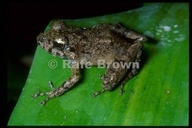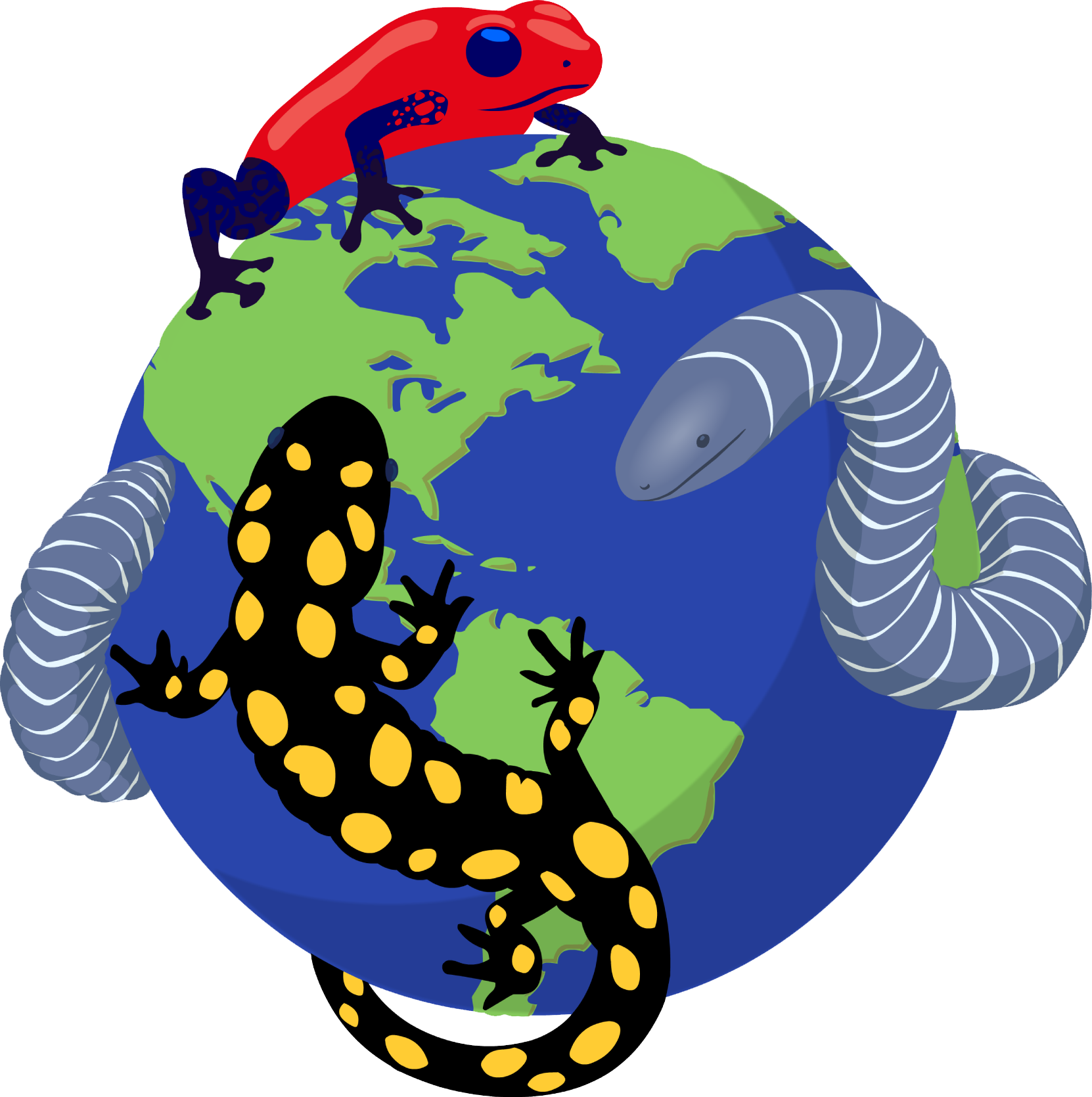|
Description
Platymantis guentheri is a small and slender terrestrial frog species. Most males attain maturity at a snout-vent length of about 24 mm and females at about 27 mm. Skin of the dorsum is rough, rarely smooth, without longitudinal folds except for a very short pair in the shoulder region or middle of the back, which is seen occasionally. The lower abdomen and the posterior and lower surface of the thighs are granular. Its head is relatively narrow. The snout is tapering, roundly pointed, and its length is greater than the diameter of the eye. The tympanum is distinct with its diameter greater than one-half the diameter of the eye. Vomerine teeth are prominent. The hind limbs are long at about 185% to 208% of its snout-vent length. The finger discs are well developed, truncated, and the diameter of disc of the third finger is usually slightly less than 25% of the length of the third finger. Its toes are slender with the tips of toes having rounded discs, which are smaller than those of the fingers. These toes are webbed to the base of the proximal subarticular tubercle of first three toes. Subarticular tubercles are prominent and roundly pointed (Brown and Alcala 1963).
Coloration: The dorsum is more or less uniformly dark, lighter (grayish) with dark markings, with a narrow or broad median light stripe, or with light dorso-lateral stripes. The venter is uniformly light or has brown spots on the anterior abdomen or anterior abdomen and head, and the hind limbs have dark crossbars (Brown and Alcala 1963).
Distribution and Habitat
Country distribution from AmphibiaWeb's database: Philippines
P. guentheri occurs in the rainforests of Bohol, Leyte, Biliran, Maripipi, Dinagat, Panglao, and Mindanao Islands in the Philippines, at altitudes from sea level to 700 m (Diesmos et al. 2004). It occupies epiphytic ferns, and is also found in tree holes, tree trunks, and among duff of the forest floor (Brown and Alcala 1963). It also survives in disturbed habitats adjacent to forested areas. It likely occurs a little more widely than current records suggest, especially in areas between known sites (Diesmos et al. 2004). Life History, Abundance, Activity, and Special Behaviors
It breeds by direct development and is believed to deposit its eggs in leaf axils, epiphytes, and aerial ferns (Diesmos et al. 2004). Trends and Threats
The major threat to this species is the loss of habitat due to shifting agriculture and the logging of lowland rainforest. There is a decreasing population trend, although it can be found frequently in humid forests. It occurs in a few protected areas, including Mount Malindang National Park and Mount Apo Natural Park. However, the designation of the remaining rainforests on the islands of Mindanao, Leyte, Bohol, and Dinagat as protected areas, is needed (Diesmos et al. 2004).
Possible reasons for amphibian decline General habitat alteration and loss
Habitat modification from deforestation, or logging related activities
Intensified agriculture or grazing
Urbanization
Habitat fragmentation
Comments
The species was first described by Boulenger, 1882 (Frost 2007).
There have been descriptions of different species that have ultimately been considered to be synonymous with P. guentheri. These include: Cornufer guentheri, Cornufer ingeri, Cornufer ingeri, Cornufer guentheri, and Platymantis ingeri (Frost 2007).
References
Brown, W.C. and Alcala, A.C. (1963). ''A New Frog of the Genus Cornufer (Ranidae) with Notes on Other Amphibians Known from Bohol Island, Philippines.'' Copeia, 4, 672-675.
Diesmos, A., Alcala, A., Brown, R., Afuang, C., Gee, G., Hampson, K., Diesmos, M.L., Mallari, A., Ong, P., Ubaldo, D., Gutierrez, B. 2004. Platymantis guentheri. In: IUCN 2010. IUCN Red List of Threatened Species. Version 2010.1. . Downloaded on 17 May 2010
Frost, D.R. 2007. Amphibian Species of the World: an Online Reference. Version 5.1 (10 October, 2007). Electronic Database accessible at American Museum of Natural History, New York, USA. Platymantis guentheri. Accessed on 18 May 2010.
Originally submitted by: Steven Micheletti (first posted 2010-05-20)
Edited by: Brent Nguyen, Mingna (Vicky) Zhuang (2012-03-13)Species Account Citation: AmphibiaWeb 2012 Platymantis guentheri: Guenther's Forest Frog <https://amphibiaweb.org/species/4894> University of California, Berkeley, CA, USA. Accessed May 19, 2025.
Feedback or comments about this page.
Citation: AmphibiaWeb. 2025. <https://amphibiaweb.org> University of California, Berkeley, CA, USA. Accessed 19 May 2025.
AmphibiaWeb's policy on data use.
|




 Map of Life
Map of Life